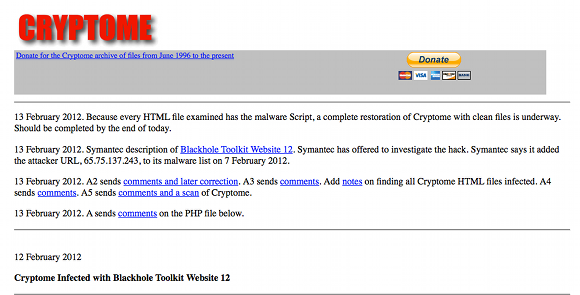Google has suspended the provisioning of pre-paid cards into its electronic wallet, preventing the use of stolen cards but equally preventing new customers from signing up.
Two recent attacks have been made on Google’s Wallet, which protects cards used to authorise NFC transactions made by bonking a phone into a payment point. The suspension of provisioning deals with the problem of the latter, more trivial, attack, while Google makes a technical fix – but fixing customer confidence will be much more of a challenge.

The first attack, which remains possible, can only be launched on a phone which has been rooted and requires installation (and development) of some specialist software. That attack discoverers the user’s existing PIN, and once this is known the attacker can make payments and view the transaction history of the user – though the attacker cannot see the details of the cards on the phones (which are not displayed on-screen as we erroneously reported last week).
The latter attack requires physical access to the phone, but it is trivial and can be accomplished within a few seconds if the handset isn’t protected with screen lock. Just deleting the Wallet application data makes it ask for a replacement PIN as though running it for the first time, but it also makes a provisioning request to Google before it opens – so by halting provisioning Google has blocked that process.
Both attacks allow the miscreant to make payments using the credit stored on the phone, at least until the account is cancelled, making an electronic wallet almost as insecure as a physical one. The electronic version still won’t reveal the card details, and can be remotely cancelled as well as tracked (if appropriate software is installed), so it is still much more secure than a the traditional leather package, but that’s not how the public sees it.
New technology is always scary, and people have been carrying wallets for a long time. A lost wallet is a known quantity, and the familiarity makes it less scary. Most stolen wallets are taken for the cash they contain, and then discarded; electronic wallets may well prove similar.
NFC World reckons that Google rushed its Wallet out, with the intention of fixing it later, and lists several outstanding questions about how transfer to balances and repeated installations will be handled. None of the attacks have targeted the NFC payment process itself, instead revealing flaws in the way users manage the Wallet, which lies outside the NFC standard.
The problem for the industry is the undermining of public confidence in the whole idea of proximity payments. Once undermined, that confidence is very hard to rebuild – and one has to wonder if Google is the ideal company to handle that rebuilding. ®
Article source: http://go.theregister.com/feed/www.theregister.co.uk/2012/02/13/google_wallet_lock/
